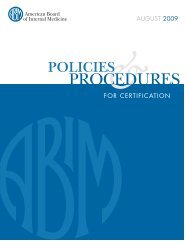The SRA Symposium - College of Medicine
The SRA Symposium - College of Medicine
The SRA Symposium - College of Medicine
Create successful ePaper yourself
Turn your PDF publications into a flip-book with our unique Google optimized e-Paper software.
Papers<br />
As illustrated (Figure 1) the process based quality management system shows the significant<br />
role that clients have in defining requirements as inputs. <strong>The</strong> continual improvement <strong>of</strong> a quality<br />
management system is derived from monitoring the satisfaction <strong>of</strong> clients, by evaluating information<br />
relating to their perception, as it is this that determines whether an organisation has met the<br />
requirements <strong>of</strong> their client (AS/NZS ISO, 2000).<br />
UniSA – A Formal management system<br />
<strong>The</strong> issue <strong>of</strong> quality has been recognised as being critically linked to an organisation’s success<br />
(Buzzell & Gale, 1987; Gronroos, 1990; Howat, Milne & Crilley, 1996). Embracing the principles <strong>of</strong><br />
quality, UniSA has developed a framework, which includes a suite <strong>of</strong> tools and systems for managing<br />
its research and consultancy projects. <strong>The</strong> aim <strong>of</strong> developing this quality framework has been<br />
built on enabling a level <strong>of</strong> process consistency and gaining a better knowledge <strong>of</strong> our clients.<br />
To be able to objectively measure client satisfaction one must have a consistent approach. To<br />
achieve this the Research and Innovation Services Office has developed policy and procedures for<br />
the project management <strong>of</strong> research and consultancy along with mechanisms for the continual review<br />
and improvement <strong>of</strong> its processes. This approach is consistent with Johnson’s (1993) concept<br />
<strong>of</strong> ISO quality, suggesting that ISO9000 is about meeting client (or customer) requirements with a<br />
system that is appropriate, planned, controlled, documented and fully understood.<br />
At a functional level a reliable approach to the management, tracking and recording <strong>of</strong> research<br />
and consultancy projects has been achieved through the development <strong>of</strong> a web-based project management<br />
system called the Project Quality System (PQS). <strong>The</strong> PQS enables projects to be managed<br />
from proposal stage through to project completion, as its process tracks and records client details;<br />
intellectual property opportunities; risk assessment; capacity approval; budget entry and client<br />
feedback. It is this latter component, client feedback, which is in many ways most important as it<br />
enables us to assess whether we are delivering services our clients value.<br />
Service Quality Perceptions – <strong>The</strong> Clients’ Perception<br />
<strong>The</strong> initial question to be addressed therefore is “what do our clients value or want in their interactions<br />
with UniSA’s research services?” In 2001 UniSA undertook a project to answer this question.<br />
A portfolio <strong>of</strong> service attributes were identified by conducting two external client focus groups.<br />
Service quality issues were then incorporated into a self administered questionnaire and subsequently<br />
piloted with a sample <strong>of</strong> clients from the PQS database. <strong>The</strong> self administered questionnaires<br />
use a tailored service specific version <strong>of</strong> SERVQUAL, a conceptual service quality model<br />
able to facilitate the monitoring <strong>of</strong> customers’ service quality expectations and performance<br />
(Parasuraman, Zeithaml & Berry, 1985 and 1988).<br />
90 2005 <strong>Symposium</strong> Proceedings Book

















